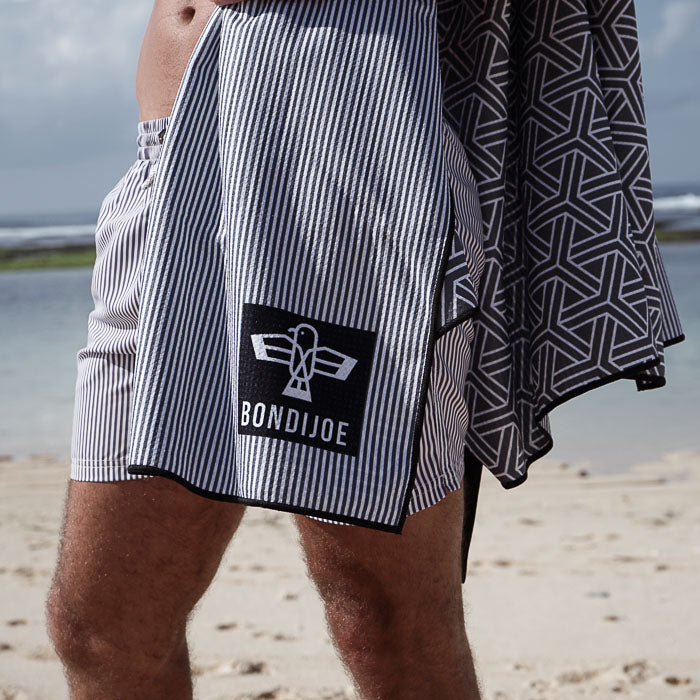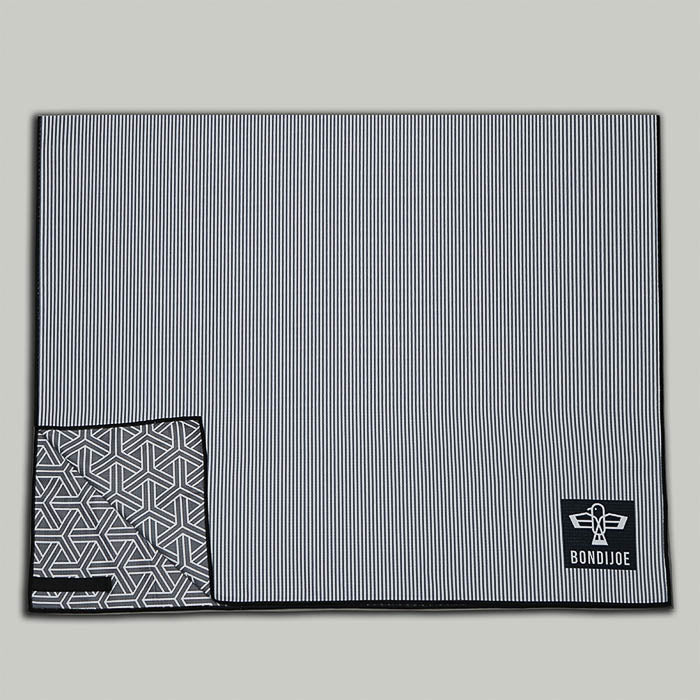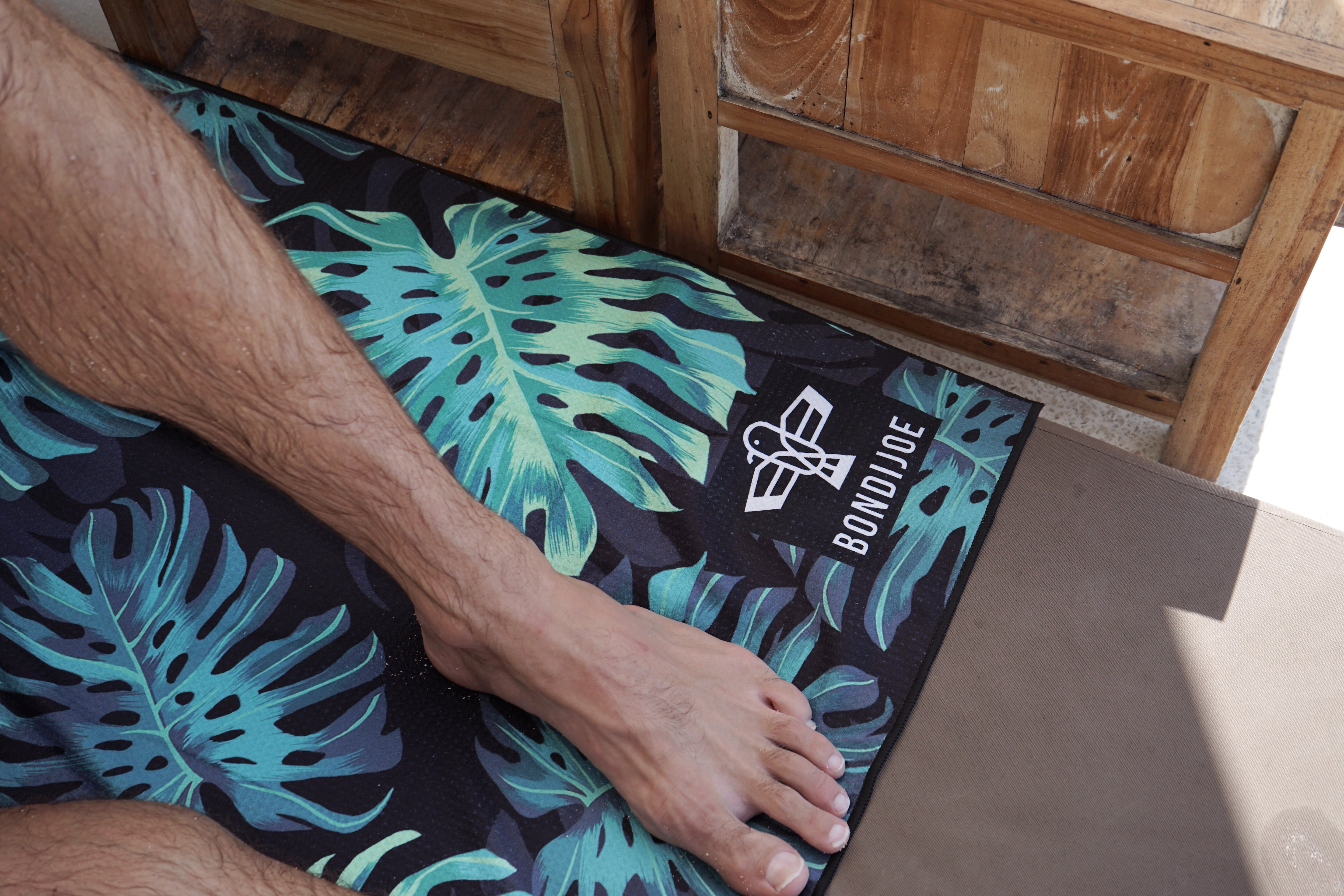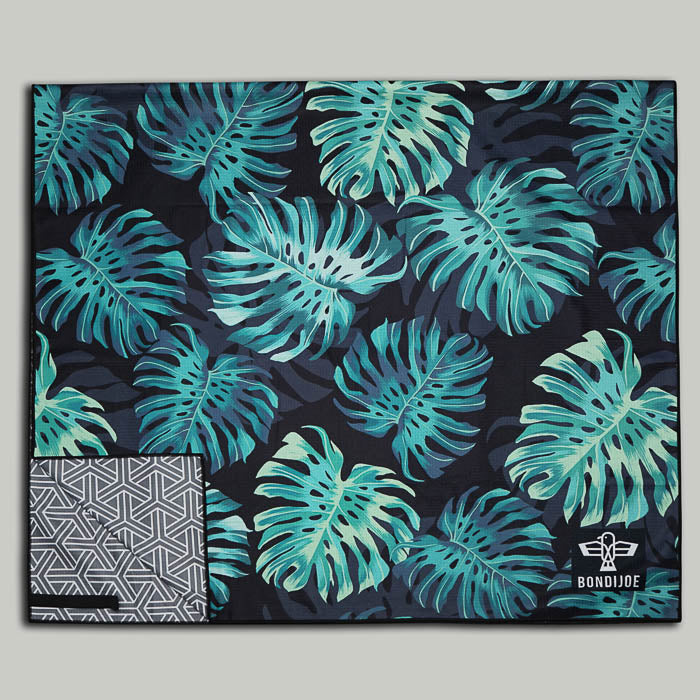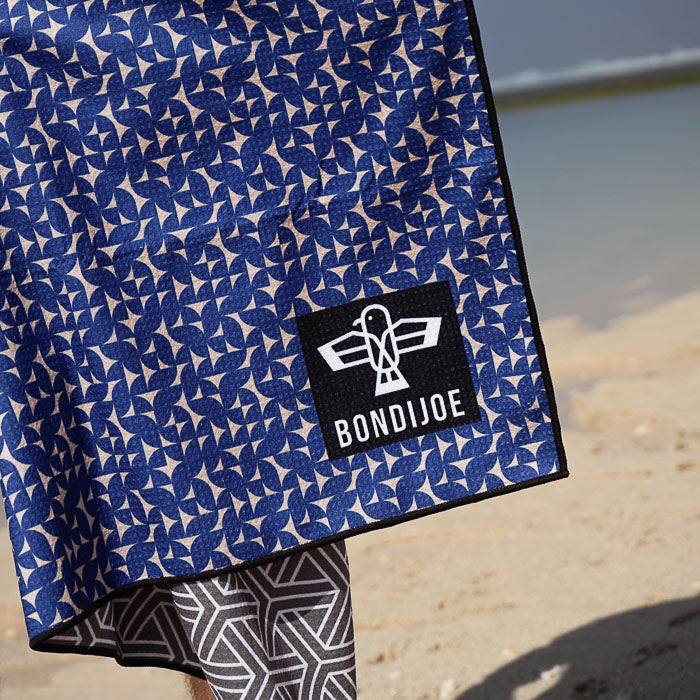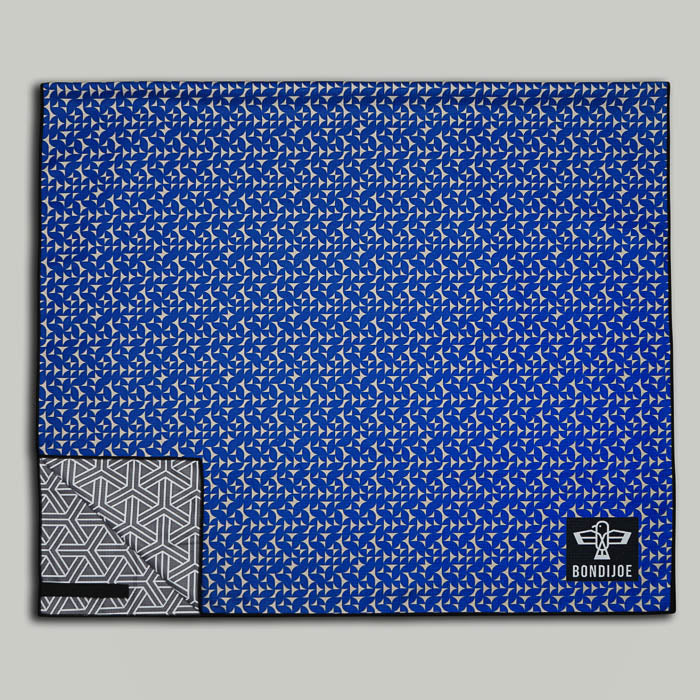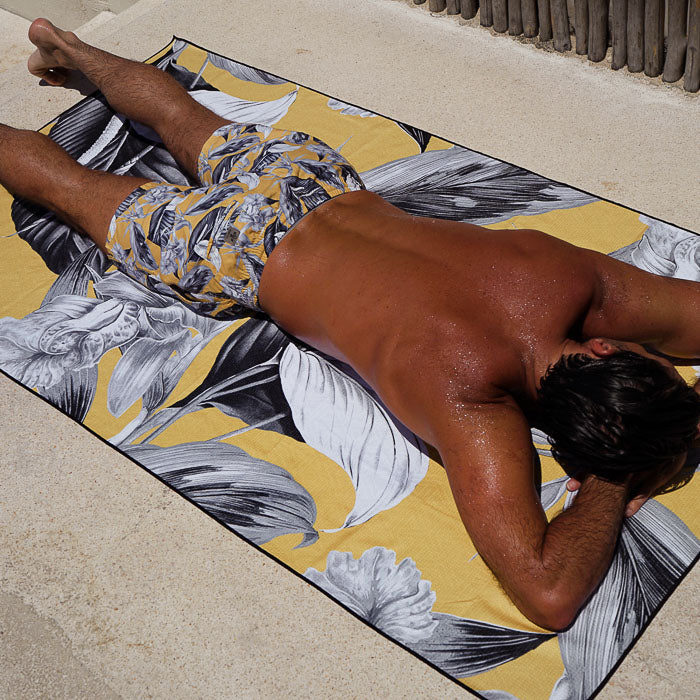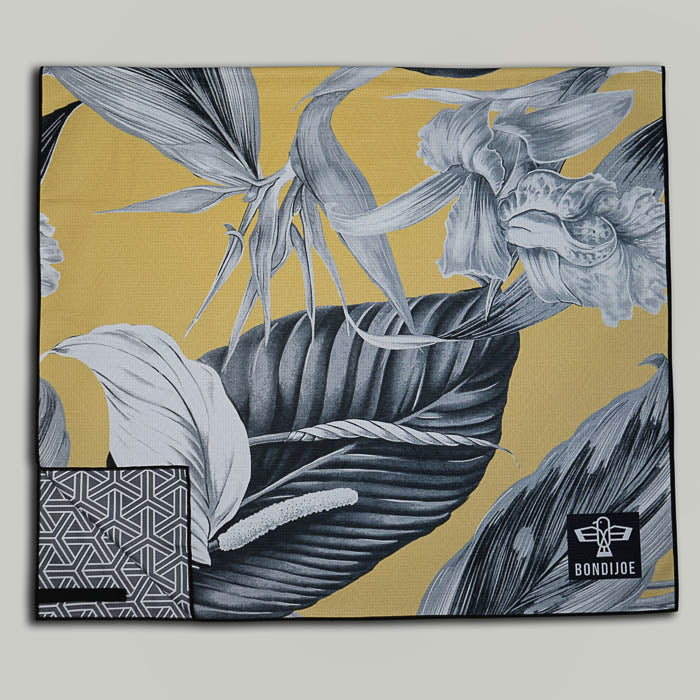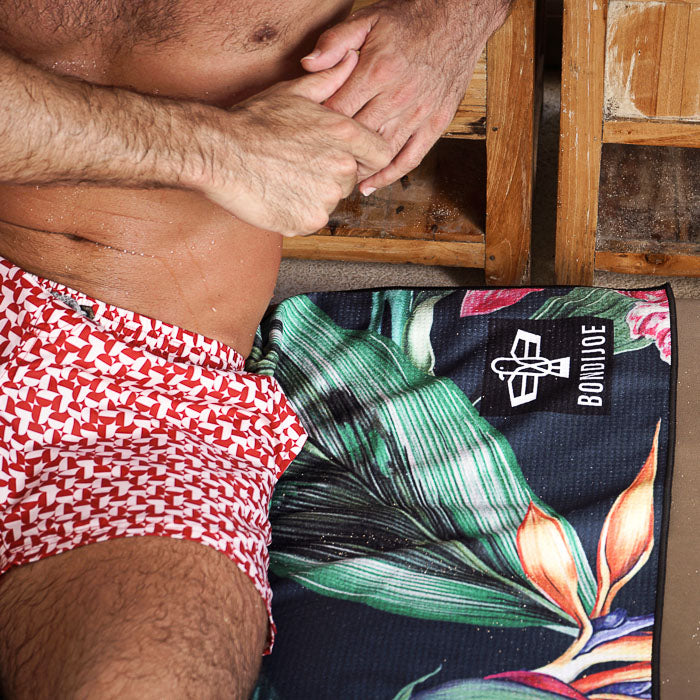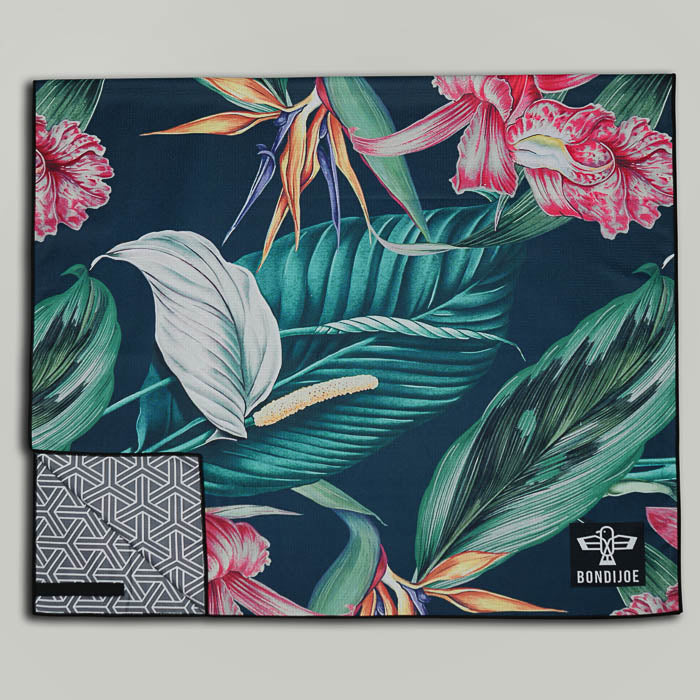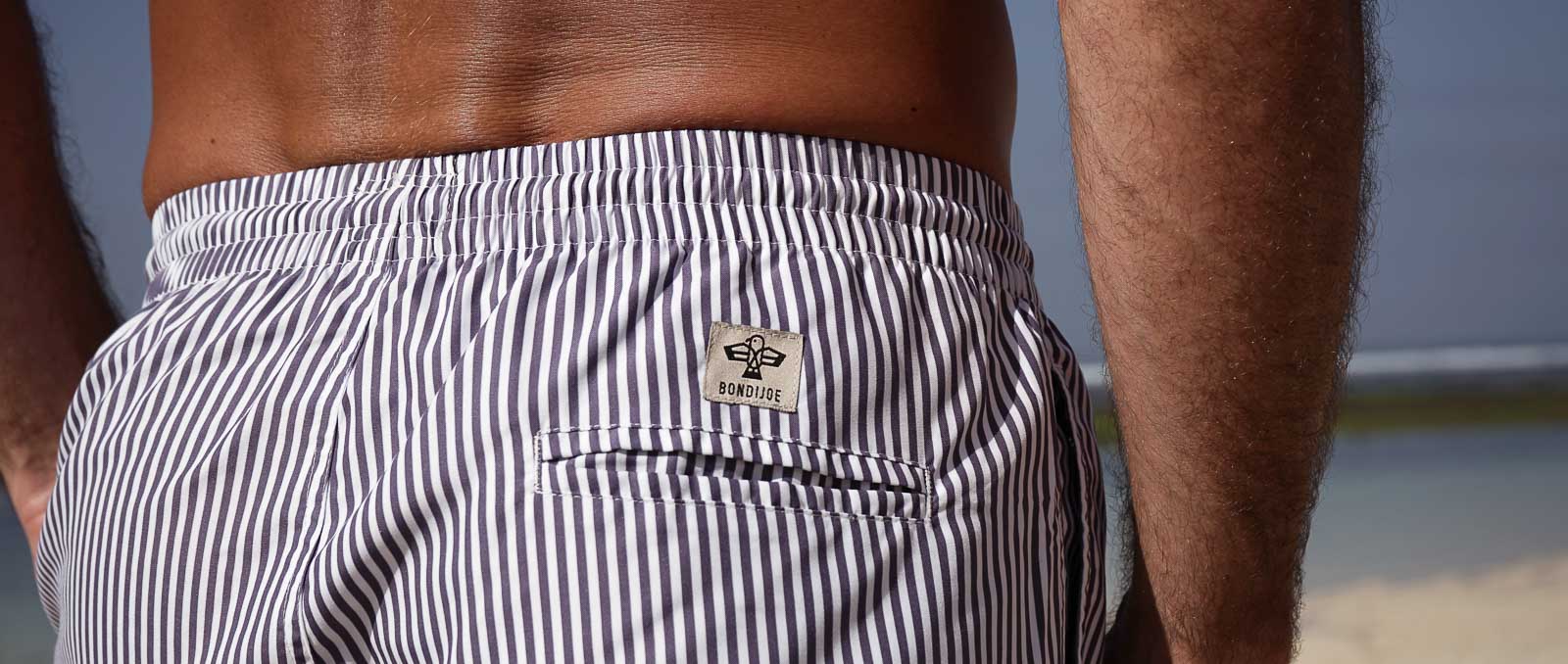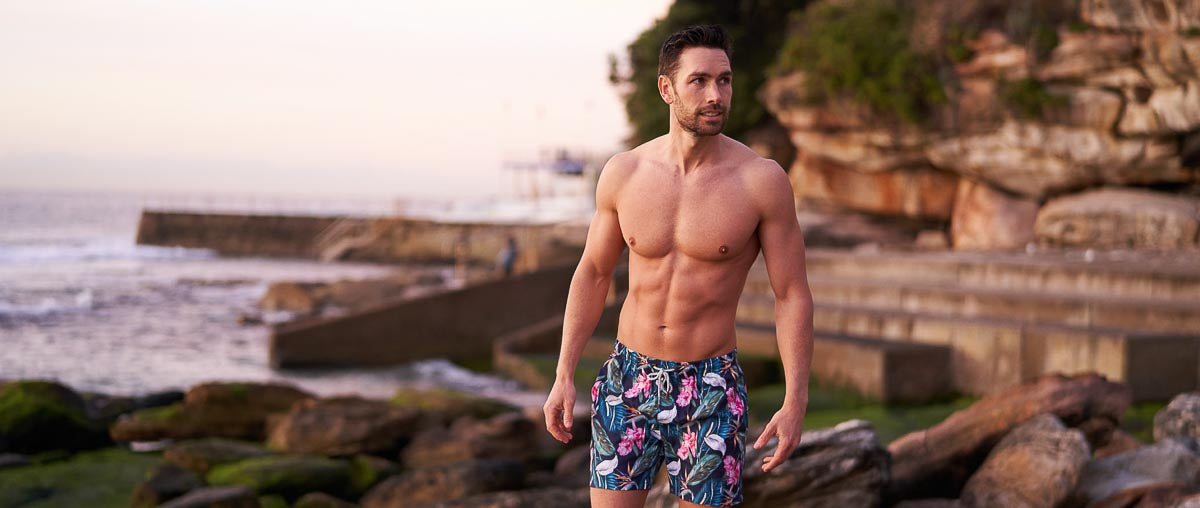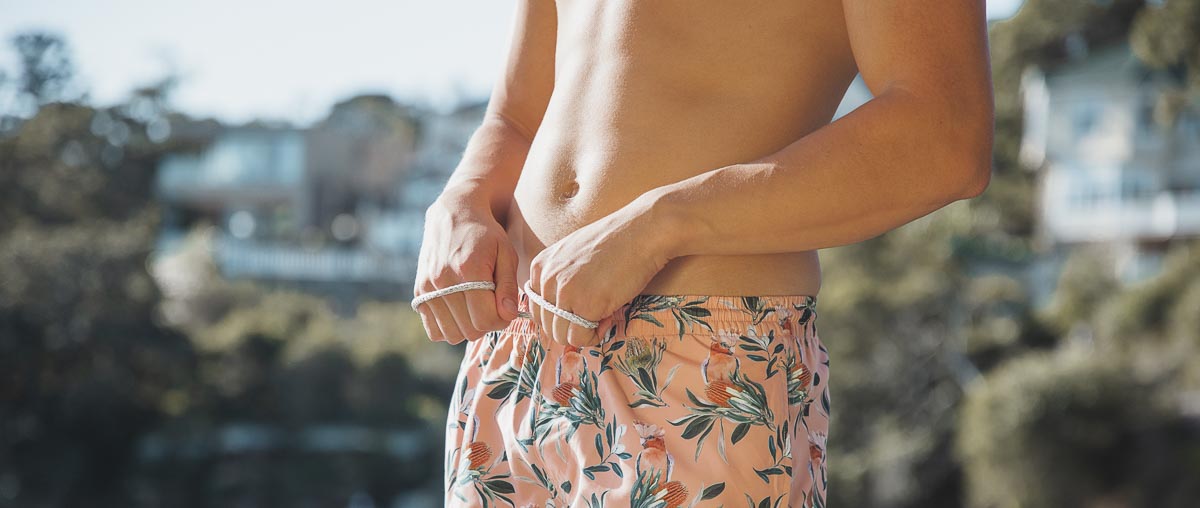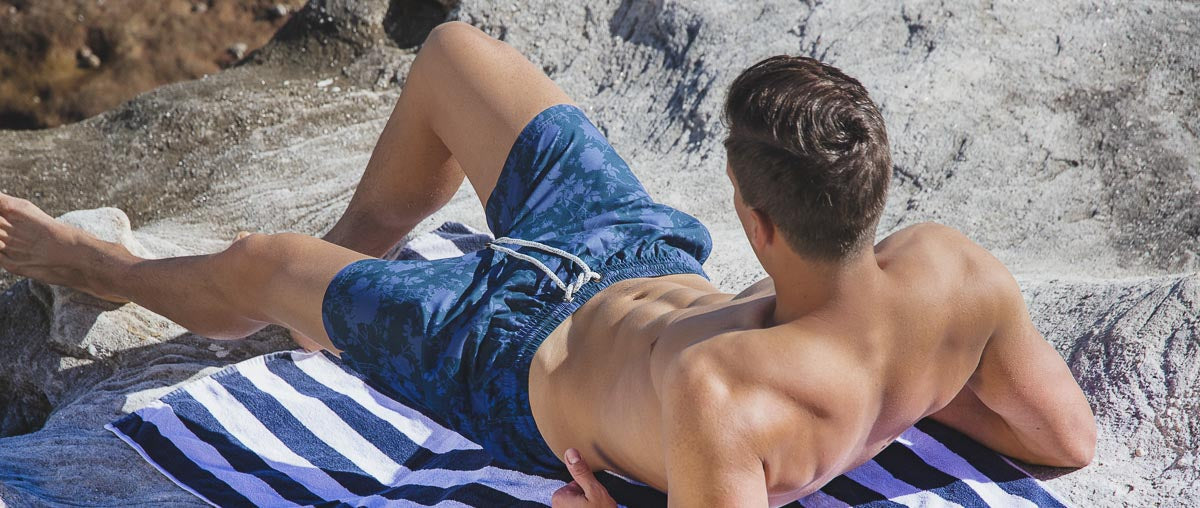A beach towel is more than just a piece of fabric; it's an essential accessory that can significantly enhance your beach experience. The right beach towel can provide comfort, absorbency, and style, making your time by the sea more enjoyable. With so many options available, choosing the perfect beach towel can be overwhelming. This guide will help you navigate the key factors to consider, ensuring you select the ideal towel for your beach adventures.
Key Factors to Consider When Choosing a Beach Towel
Material
The material of a beach towel is crucial for its performance and comfort. Here are some common materials and their benefits:
- Cotton: Known for its softness and absorbency, cotton is a popular choice for beach towels. Egyptian and Turkish cotton are particularly luxurious and effective at drying.
- Microfiber: Lightweight and quick-drying, microfiber towels are highly absorbent and compact, making them ideal for travel.
- Bamboo: Bamboo towels are eco-friendly, naturally antibacterial, and extremely soft. They are also very absorbent and dry quickly.
- Velour: Velour towels have a plush, velvety texture on one side and an absorbent terry cloth on the other. They are comfortable for lounging but may take longer to dry.
Size
Beach towels come in various sizes to accommodate different needs. Consider the following sizes:
- Standard Size: Typically around 30x60 inches, standard beach towels are suitable for most users and provide enough space to lie on comfortably.
- Oversized: Measuring around 35x70 inches or larger, oversized towels offer more space for stretching out and are ideal for taller individuals or those who prefer extra room.
- Compact: Smaller towels, around 28x58 inches, are more portable and easier to pack, making them ideal for travelers and minimalists.
Absorbency
Absorbency is a key factor in choosing a beach towel, especially if you plan to use it for drying off after swimming. Look for towels made from highly absorbent materials like cotton, microfiber, or bamboo. The thickness and density of the towel also affect absorbency, with thicker towels generally being more absorbent.
Quick-Drying
A quick-drying towel is essential for beach outings, as it prevents mildew and allows you to reuse the towel throughout the day. Microfiber and bamboo towels are known for their quick-drying properties, making them ideal choices.
Weight and Portability
Consider the weight and portability of the towel, especially if you plan to travel with it. Lightweight towels are easier to carry and take up less space in your beach bag. Microfiber towels are particularly compact and travel-friendly.
Design and Color
Beach towels come in a wide range of designs and colors, allowing you to express your personal style. Consider the following:
- Bold Patterns: Stripes, tropical prints, and geometric designs are popular choices that make a statement.
- Solid Colors: Simple and elegant, solid color towels are versatile and timeless.
- Personalization: Some brands offer personalized towels with monograms or custom designs, adding a unique touch to your beach gear.
Durability
A durable beach towel will withstand frequent use and washing. Look for high-quality materials and construction, such as reinforced edges and double-stitched hems, to ensure longevity.
Special Features
Consider any additional features that may enhance your beach experience:
- Sand-Free: Sand-resistant towels prevent sand from sticking, making it easy to shake off and keep your towel clean.
- Hooded: Hooded towels provide extra warmth and protection from the sun, making them ideal for children and windy days.
- Multi-Functional: Some towels can double as beach blankets, wraps, or picnic mats, offering versatility and convenience.
Tips for Choosing the Perfect Beach Towel
Assess Your Needs
Think about how you plan to use the towel. If you need a towel primarily for drying off, prioritize absorbency and quick-drying properties. For lounging, consider size and comfort.
Check Reviews
Reading customer reviews can provide valuable insights into the quality, performance, and durability of the towel. Look for reviews that mention key factors like absorbency, softness, and drying time.
Consider the Environment
If you're environmentally conscious, look for eco-friendly options made from organic or sustainable materials like bamboo or organic cotton.
Test the Towel
If possible, feel the towel before purchasing to ensure it meets your comfort and quality standards. Check for softness, thickness, and overall construction.
Budget
Determine your budget and look for towels that offer the best value for money. While high-quality towels may cost more, they often provide better performance and longevity.
Conclusion
Choosing the perfect beach towel involves considering factors such as material, size, absorbency, quick-drying properties, and design. By assessing your needs and preferences, you can find a towel that enhances your beach experience, providing comfort, convenience, and style. Whether you prioritize luxury, practicality, or sustainability, there is a beach towel out there that will meet your requirements and accompany you on countless enjoyable beach outings.
Take your time to explore different options, read reviews, and even test the towel if possible. Investing in a high-quality beach towel will pay off in the long run, ensuring you have a reliable and comfortable accessory for all your beach adventures. Enjoy your time in the sun with a towel that perfectly suits your needs, and make the most of your beach days with confidence and style. Check out our other beach towel buying gudies.
FAQs
1. What is the best material for a beach towel?
The best material depends on your needs. Cotton is highly absorbent and soft, microfiber is lightweight and quick-drying, and bamboo is eco-friendly and antibacterial.
2. How do I care for my beach towel to ensure it lasts?
Follow the care instructions on the label. Generally, wash the towel in cold or warm water with a mild detergent, avoid using fabric softeners, and tumble dry on low heat or air dry.
3. Are oversized beach towels better?
Oversized beach towels offer more space and comfort, making them ideal for lounging and taller individuals. However, they can be bulkier and heavier to carry.
4. Can I use a regular bath towel as a beach towel?
While you can use a bath towel, beach towels are specifically designed for outdoor use. They are usually larger, more absorbent, and often have quick-drying properties.
5. What makes a towel sand-free?
Sand-free towels are made from materials that repel sand or have tightly woven fibers that prevent sand from sticking. They make it easy to shake off sand and keep your towel clean.
6. How often should I replace my beach towel?
With proper care, a high-quality beach towel can last several years. Replace your towel if it becomes frayed, loses absorbency, or develops persistent odors.



